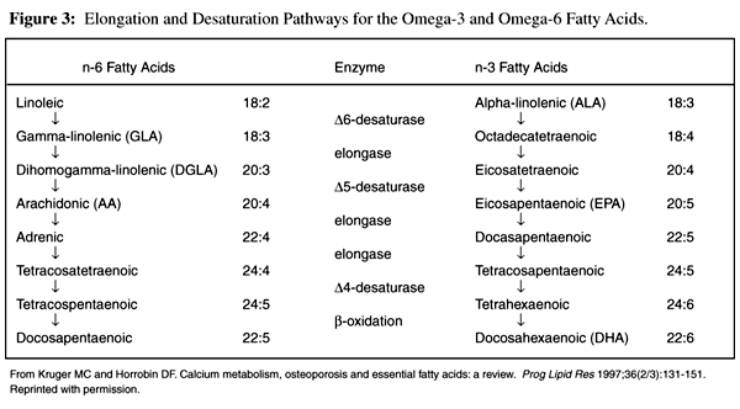Source Cochrane Summaries
Antioxidant supplements for prevention of mortality in healthy participants and patients with various diseases
Bjelakovic G, Nikolova D, Gluud LL, Simonetti RG, Gluud C
Previous research on animal and physiological models suggests that antioxidant supplements have beneficial effects that may prolong life. Some observational studies also suggest that antioxidant supplements may prolong life, whereas other observational studies demonstrate neutral or harmful effects. Our Cochrane review from 2008 demonstrated that antioxidant supplements seem to increase mortality. This review is now updated.
The present systematic review included 78 randomised clinical trials. In total, 296,707 participants were randomised to antioxidant supplements (beta-carotene, vitamin A, vitamin C, vitamin E, and selenium) versus placebo or no intervention. Twenty-six trials included 215,900 healthy participants. Fifty-two trials included 80,807 participants with various diseases in a stable phase (including gastrointestinal, cardiovascular, neurological, ocular, dermatological, rheumatoid, renal, endocrinological, or unspecified diseases). A total of 21,484 of 183,749 participants (11.7%) randomised to antioxidant supplements and 11,479 of 112,958 participants (10.2%) randomised to placebo or no intervention died. The trials appeared to have enough statistical similarity that they could be combined. When all of the trials were combined, antioxidants may or may not have increased mortality depending on which statistical combination method was employed; the analysis that is typically used when similarity is present demonstrated that antioxidant use did slightly increase mortality (that is, the patients consuming the antioxidants were 1.03 times as likely to die as were the controls). When analyses were done to identify factors that were associated with this finding, the two factors identified were better methodology to prevent bias from being a factor in the trial (trials with ‘low risk of bias’) and the use of vitamin A. In fact, when the trials with low risks of bias were considered separately, the increased mortality was even more pronounced (1.04 times as likely to die as were the controls). The potential damage from vitamin A disappeared when only the low risks of bias trials were considered. The increased risk of mortality was associated with beta-carotene and possibly vitamin E and vitamin A, but was not associated with the use of vitamin C or selenium. The current evidence does not support the use of antioxidant supplements in the general population or in patients with various diseases.
We found no evidence to support antioxidant supplements for primary or secondary prevention. Beta-carotene and vitamin E seem to increase mortality, and so may higher doses of vitamin A. Antioxidant supplements need to be considered as medicinal products and should undergo sufficient evaluation before marketing.
Abstract included here.




Very funny! I’ll bet even money that most of these *failed studies* used synthetic nutrients to achieve those miserable results. Here’s some thoughts about several of the articles they MUST have reviewed:
Recent Negative Press
2009 was a watershed year for negative reporting about the benefits of supplementation. The worst examples were two papers published in the Journal of the American Medical Association, reporting on the results of the Physicians’ Health Study trial. The authors enrolled 14,641 male physicians from the United States, aged 50 years or older. They divided them into 4 groups, but only 3,656 doctors actually received 400 IU (international units) of vitamin E every other day, and 500 mg of “vitamin C” daily. They tracked this group for 8 years, reviewed their health status, and then published 2 separate studies.
The first study (the Heart paper) [2] concluded that vitamin C and vitamin E supplementation did not reduce their risk for major cardiovascular events. However, the selection of candidates, and the methods used in this study were both seriously flawed:
· The median age of participants was 64.3 years old [4]
· 42% had pre-existing high blood pressure
· 6% had pre-existing heart disease
· 6% had pre-existing diabetes
· Men with a history of heart attacks, or previous strokes (indicating vascular disease) were eligible to participate in this study
· All 3,656 participants received synthetic ascorbic acid and synthetic -tocopherol, produced by BASF, the “Chemical Company”.
The second study [3] used this same flawed cohort to state that vitamin C & E supplementation did not reduce the risk of prostate, or other forms of cancer. The weak points in this study include:
· 9% already had pre-existing cancers
· 44% were past or current smokers
· Men with a history of cancer were eligible to participate in the study
· All of them received synthetic supplements [5-6]
· Participants received their supplements by mail, and adherence to the program was defined by written reports from the doctors, if they took least two-thirds of their supplements. So, the doctors could forget to take their vitamins and could still remain in the program. It’s quite likely that under-dosing was common.
Do you a pattern here? Using older individuals, who already have the disease you want to prevent, or have multiple risk factors for developing that disease (including advanced age, history of smoking, high blood pressure, uncontrolled cholesterol levels, and high homocysteine levels) is a very effective way to make supplementation look bad.
Numerous other studies, discussed in a previous HealthQuest (Issue 25-2) used similar bogus strategies to discount the benefits of supplementation.
The underlying flaw with these studies is that they treat single nutrients as though they were experimental drugs.
In Nature, vitamins do not exist as single components that act independently. In reality, Vitamins occur in our foods as complexes. Vitamin complexes are made up of several different components — enzymes, co-enzymes, and co-factors — that need to work together synergistically to produce their intended biologic effects.
It should come as no surprise that synthetic ascorbic acid, all by itself, is not very helpful, especially when it is stripped of all the other active agents which are normally bound to it in our food.
Although chemical companies would have you believe that synthetic vitamin C, E, beta-carotene or other manufactured nutrients are identical to the naturally occurring forms, considerable research has demonstrated that the human body recognizes this difference. The digestive tract absorbs less of them than their natural counterparts, and chooses to excrete them more quickly. [7-10]
All of the large prospective studies of the last 40 years have shown that those individuals who eat the most fruits and vegetables also have the lowest incidence of the diseases of aging: heart disease, cancer, stroke, pulmonary diseases (including pneumonia), and stroke. [11] These are the top 6 killers of anyone above the age of 55. [12]
REFERENCES:
1. National Center for Policy Analysis
http://www.ncpa.org/sub/dpd/index.php?Article_ID=9413
2. Vitamins E and C in the prevention of cardiovascular disease in men: the Physicians’ Health Study II randomized controlled trial
JAMA 2008 (Nov 12); 300 (18): 2123-2133
http://jama.ama-assn.org/cgi/content/full/300/18/2123
3. Vitamins E and C in the prevention of prostate and total cancer in men: the Physicians’ Health Study II randomized controlled trial
JAMA 2009 (Jan 7); 301 (1): 52-62
http://jama.ama-assn.org/cgi/content/full/301/1/52
4. Physicians’ Health Study II: A Review
Medscape Family Medicine; 11-24-2008
http://www.medscape.com/viewarticle/583792?sssdmh=dm1.424263&src=journalnl
5. Natural vs. Synthetic Vitamin E
http://www.chiro.org/nutrition/FULL/Natural_vs_Synthetic_Vitamin_E.shtml
6. The Vitamin C Page
http://www.chiro.org/nutrition/Vitamin_C.shtml
7. Biodiscrimination of alpha-tocopherol stereoisomers in humans after oral administration
Am J Clin Nutr 1997 (Mar); 65 (3): 785-9
http://www.ncbi.nlm.nih.gov/pubmed/9062530
8. Human plasma and tissue alpha-tocopherol concentrations in response to supplementation with deuterated natural and synthetic vitamin E
Am J Clin Nutr 1998 (Apr); 67: 669-84
http://www.ncbi.nlm.nih.gov/pubmed/9537614
9. Synthetic as compared with natural vitamin E is preferentially excreted as a-CEHC in human urine: studies using deuterated a-tocopheryl acetate
FEBS Letters 1998 (Oct 16); 437: 145-8
http://www.ncbi.nlm.nih.gov/pubmed/9804189
10. Comparative bioavailability to humans of ascorbic acid alone or in a citrus extract
Am J Clin Nutr. 1988 (Sep); 48 (3): 601-4
http://www.ncbi.nlm.nih.gov/pubmed/3414575
11. National Health and Nutrition Examination Survey
http://www.cdc.gov/nchs/nhanes.htm
12. Mortality Patterns — United States, 1991
The Centers for Disease Control (CDC)
http://www.cdc.gov/mmwr/preview/mmwrhtml/00022217.htm
Another reason to doubt the veracity of some of these anti-oxidant studies comes from Dr Gifford-Jones newsletter. I received this on Feb 6, 2013.
A Huge Medical Myth
A 10 year study from the Harvard Medical School reports that multi-vitamin therapy has no effect on coronary heart disease. As a graduate of HMS I found this report disturbing. It was a waste of money on a study doomed to failure. Of course it would have no effect on heart attack as multi-vitamin pills contain only small amounts of vitamin C and no lysine.
I contacted the lead researcher and advised him that Dr. Sydney Bush, an English researcher, has proven that high doses of vitamin C and lysine can not only prevent, but also reverse narrowing of coronary arteries. These facts have been reported in my column and that Medi-C Plus, a powder containing high doses of vitamin C and lysine, is now available in health food stores. It’s now the best selling product of Preferred Nutrition. Medi -C is going to save many people from coronary attack and stroke.
I’m sure you’re wondering why a prestigious medical school would be unaware of this research. It’s primarily because Dr. Bush is not well known. If his research had been the product of The Harvard Medical School it would have made headlines around the world. So it’s unfortunately a slow process to make North Americans aware of this outstanding discovery. Bush should get the Nobel Prize in Medicine.
Gifford-Jones
More on Medi-C and the vitamin c/lysine connection., Its sales will help support The Gifford-Jones Professorship in Pain Control and Palliative Care at the University of Toronto.
In researching my most recent newsletter, I ran across an interesting article:
To add to the general confusion, a recent meta-analysis stated that taking natural α-tocopherol appeared to increase “all-cause” mortality. [1] Fortunately, a group of biochemists demonstrated that selectively giving them α-tocopherol by itself was the problem, because high blood levels of α-tocopherol actually depresses the bioavailability of other 7 forms of vitamin E from our diet (assuming that they are there at all), thus negating their chemo-preventive capability.
In other words, by eliminating the other 7 forms of the vitamin from the diet, they negate the synergy of the natural vitamin E complex to maintain health. [2]
It’s equally important to know that Vitamin E is NOT just α-tocopherol. Vitamin E is actually a combination of 8 different fat-soluble nutrients, including both the tocopherols and tocotrienols. [3] The same is true for the B and C vitamins. Neither folic nor ascorbic acid is found in Nature as isolated nutrients. They are bound together in plants and fruits as complexes, which also contain enzymes, co-factors, and other bioactive agents that have yet to be fully understood or researched.
More importantly, significant recent research demonstrates that synthetic vitamins are NOT absorbed by the body with the same vigor as natural (food-based) nutrients.
A series of 4 human trials clearly demonstrated that synthetic vitamin E is:
Poorly absorbed, compared to natural E, and is more rapidly excreted, compared to natural nutrients. [4-7]
In one experiment, it took 300 mg of synthetic vitamin E to reproduce the same blood levels achieved by a 100-mg dose of natural vitamin E. [7] Synthetic is just NOT comparable to natural nutrients.
REFERENCES:
1. Mortality in Randomized Trials of Antioxidant Supplements for Primary and Secondary Prevention: Systematic Review and Meta-analysis
JAMA. 2007 (Feb 28)
http://tinyurl.com/q4z5eur
2. Unleashing the Untold and Misunderstood Observations on Vitamin E
Genes Nutr. 2011 (Feb)
http://tinyurl.com/lgrsomz
3. Vitamin E: Function and Metabolism
FASEB J. 1999 (Jul)
http://tinyurl.com/bwr8hhb
4. Noncompetitive Plasma Biokinetics of Deuterium-labeled Natural and Synthetic Alpha-tocopherol in Healthy Men with an apoE4 Genotype
J Nutr. 2005 (May)
http://tinyurl.com/avl4ugb
5. Synthetic As Compared With Natural Vitamin E Is Preferentially Excreted as a-CEHC in Human Urine: Studies Using Deuterated A-tocopheryl Acetate
FEBS Lett. 1998 (Oct 16)
http://tinyurl.com/28jbrub
6. Human Plasma and Tissue Alpha-tocopherol Concentrations in Response to Supplementation With Deuterated Natural and Synthetic Vitamin E
Am J Clin Nutr. 1998 (Apr)
http://tinyurl.com/25dj7m8
7. Biodiscrimination of Alpha-tocopherol Stereoisomers in Humans After Oral Administration
Am J Clin Nutr 1997 (Mar)
http://tinyurl.com/23pslo5